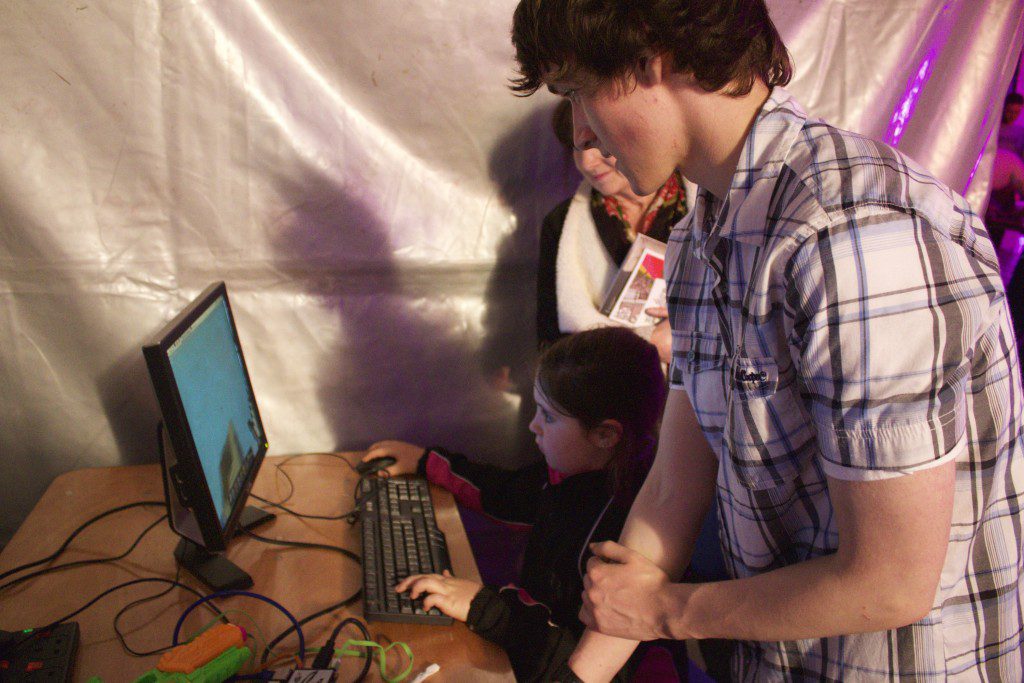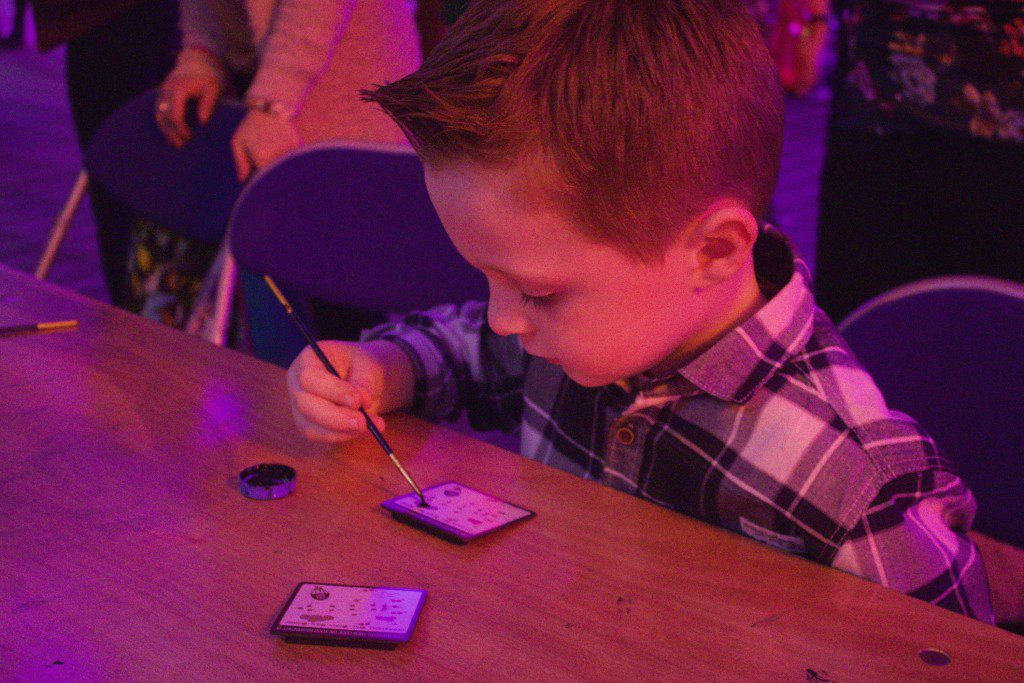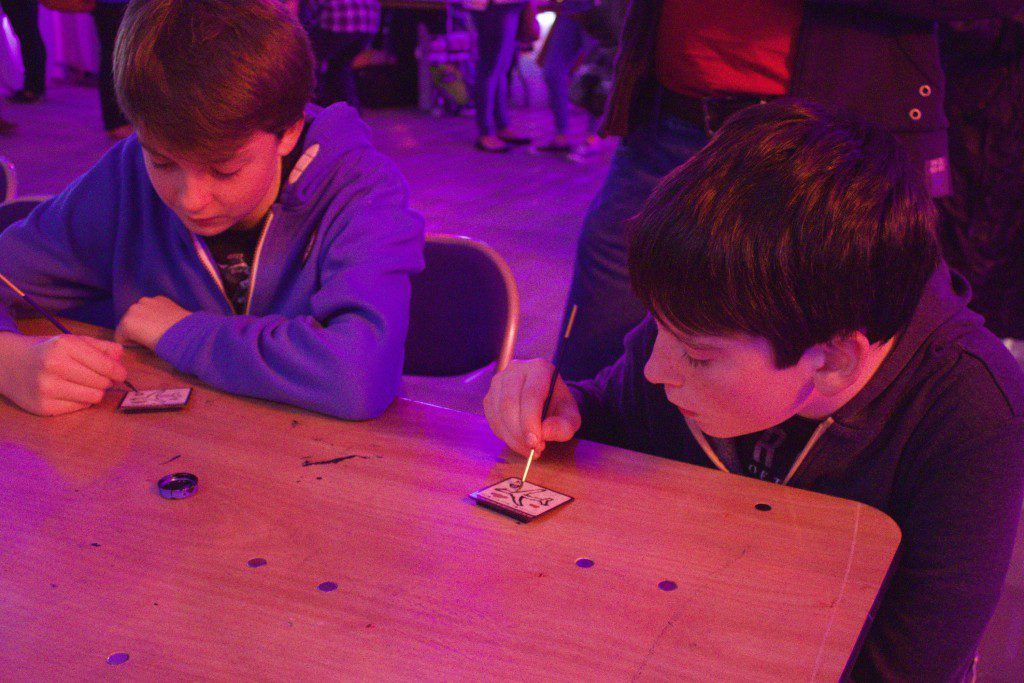Foreword
Andrew Mulholland has been an active member of the Farset community since he was dragged down from native Coleraine to attend the first Raspberry Jam in Northern Ireland, hosted by Farset Labs in the Event space in November 2012.
Since then he’s gone from strength to strength and has since taken over the running of the Jam’s,and is on the Raspberry Pi Creative Technologist programme with the Raspberry Pi Foundation.. Andrew is also the Non Executive Manager for Outreach and lead on our Outreach project with support from DCAL, CultureTech and the Pi Foundation, introducing young people to technology in the most fun ways possible.
As part of his responsibilities as a Creative Technologist, Farset Labs supported Andrew taking the Foundation’s Dots Boards activity to the BBC’s MakeItDigital tent at the CultureTech festival in Derry, where it also joined Dr Robin Price’s “This Is Not A Table” that was constructed (and usually lives in) in the Farset Labs workshop. I managed to stick around and help for a bit but it was clear I wasn’t needed, and the event ran very smoothly (if messily), all in all engaging with over 2000 children and young people.
The below is a guest blog, originally published by Andrew Mulholland, reproduced with permission.
Foreword by: Andrew Bolster
Introduction
After the major success of the Raspberry Pi Foundation Dots board activity with Minecraft Pi at Liverpool Makefest and Dublin Maker, there was one final event left that I was down to help out at before the start of the new university term, the BBC Make It Digital event at Culturetech!
So on Friday 18th September, me and a set of volunteers from Farset Labs and the Northern Ireland Raspberry Jam made our way to outside the Guildhall in Londonderry to the massive Make It Digital tent.
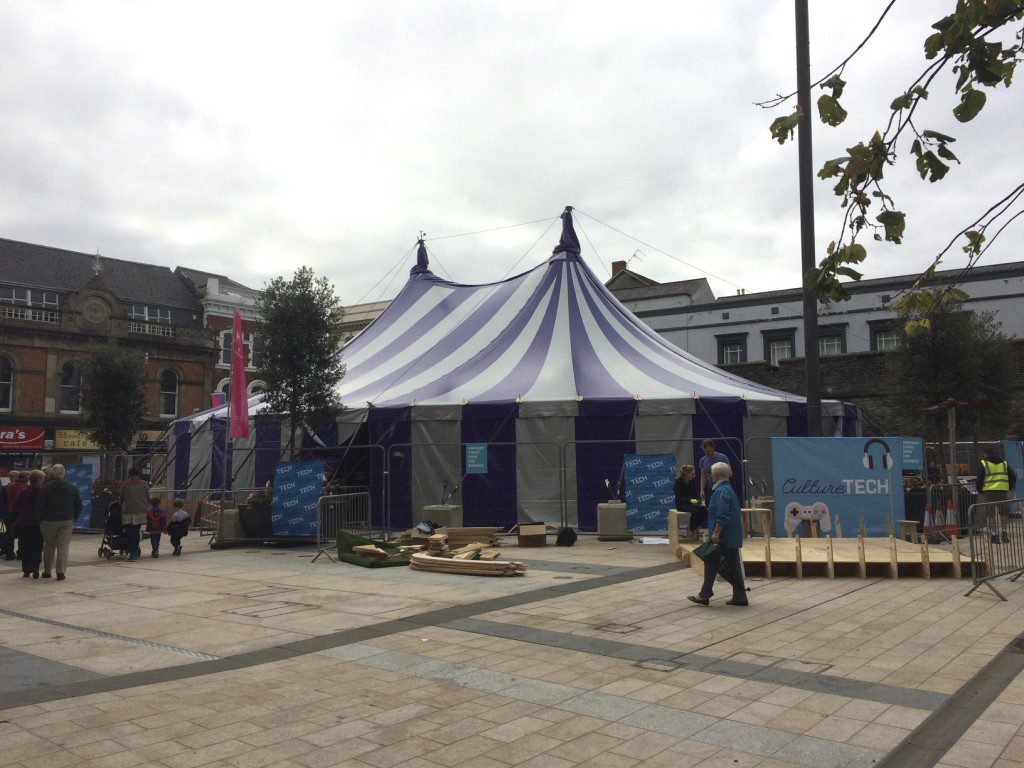
With us, we had a set of 8 Raspberry Pis (with monitors and all the cables required for them) and a box of 100 Raspberry Pi Foundation Dots boards ready to be filled in with Bare Conductive Electric paint.
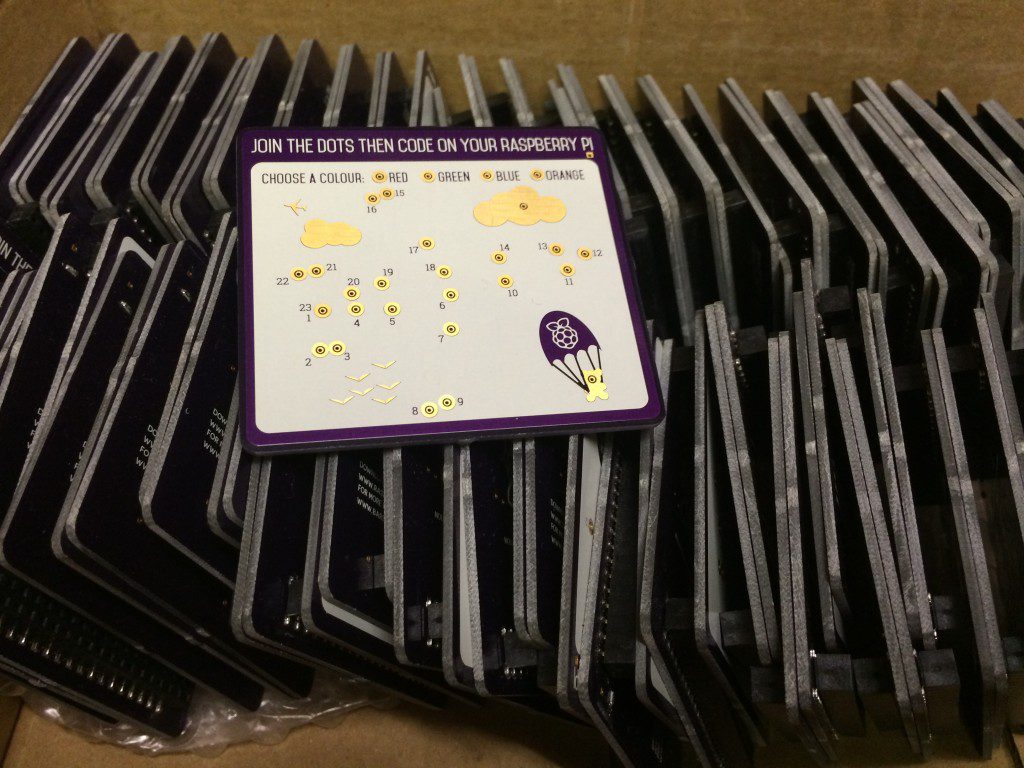
The activity
The activity we were running involved kids filling in one of the Dots boards with electric paint, then attaching these to a Raspberry Pi and seeing whatever they had drawn appear in 3d in Minecraft.
The Dots boards were developed by Rachel Rayns from the Raspberry Pi Foundation as an activity to engage people of all ages (especially younger children) in technology.
They are an extremely simple circuit board featuring a 40 pin Raspberry Pi header, a single resistor and a series of pads on the front.
These pads are the key to it all, they feature an inner circular pad and an outer ring. Between the 2 pads is a gap which can be bridged by electric paint.
Bridging the pads allows the Raspberry Pi to read it like any input, for example a button. There is 22 dot-to-dot pads, 4 colour selection pads, a pad on a cloud and finally a pad on a parachuting bear.
Although we tell the kids to do the dot-to-dot, in fact all that is actually required is a dot on each pad you want to select.
The software
For the activity, there is 2 options for the software on the Raspberry Pi side.
- The original rpi_dots python program written by Eben Upton and Ben Nuttall that simply if you have enough pins covered, an airplane (in your selected colour) will appear on screen.
- The Minecraft Pi program written by myself while on my internship with the Raspberry Pi Foundation. It splits the plane up into 10 sections, each of which is added to a 3d version of the plane inside Minecraft if it is dotted. Once the user is happy with their plane, they can attempt to see if the plane will fly. If they have enough dots dotted, the plane will fly across the sky, if not it will plummet to the ground and crash.
If the user selects the bear, a parachuting bear will come down from the clouds and if they select the cloud, grey clouds will be added to the scene and lightning will strike down.
For Liverpool Makefest, Dublin Maker and the BBC Make It Digital event, we used the 2nd option, the Minecraft Pi program.
Friday evening
The event ran from 6pm-10pm on the Friday evening to coincide with Londonderry Culturenight and the many other family friendly events going on in Londonderry that evening.
Within minutes of the doors being opened, we were swamped by people wanting to have a go with our activity, so much so we immediately discovered we had underestimated the number of volunteers we would need to run the activity!
Thankfully, the BBC stepped in and we able to provide 2 awesome guys from their team to help out.
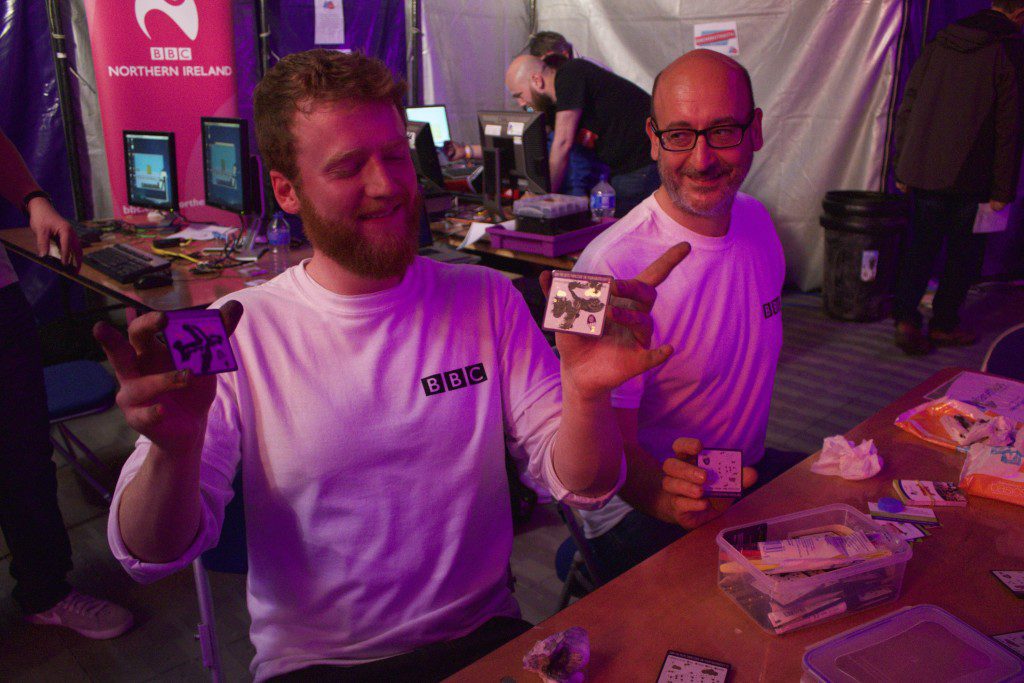
Throughout the 4 hours that evening, we had roughly 800 Dots Boards filled in (and then cleaned)!
Because we weren’t able to keep up with the demand, a hefty chunk of those 800 boards were filled in in pairs or families so the number of people taking part in the activity that evening was 1000+.
We also were visited by some pretty awesome Minecraft in education people who came by to try out the activity including COO of Mojang, Vu Bue, Deirdre Quarnstrom (Director of Minecraft Education from Microsoft) and Santeri Koivisto (CEO of Teachergaming).
We had @vubui (@Mojang COO) yesterday evening #MakeItDigital trying out @Raspberry_Pi Dots boards with Minecraft Pi! pic.twitter.com/aJ8ZeCfAtW
— Andrew Mulholland (@gbaman1) September 19, 2015
Simple concept and very cool. Painting circuits. https://t.co/lIWZNbi5e2
— Vu Bui (@vubui) September 19, 2015
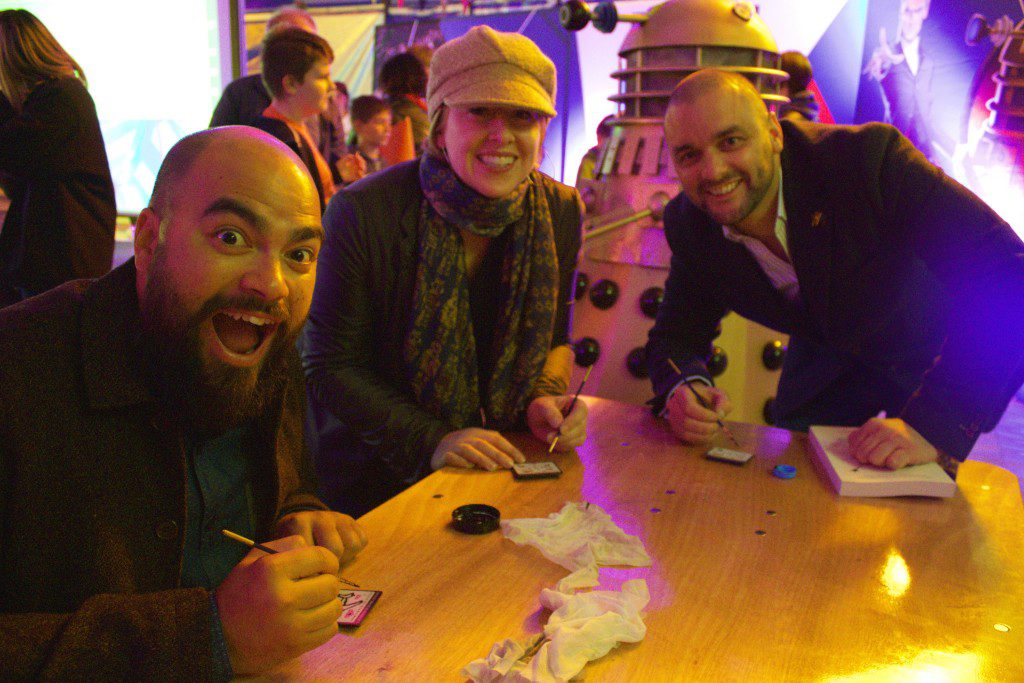
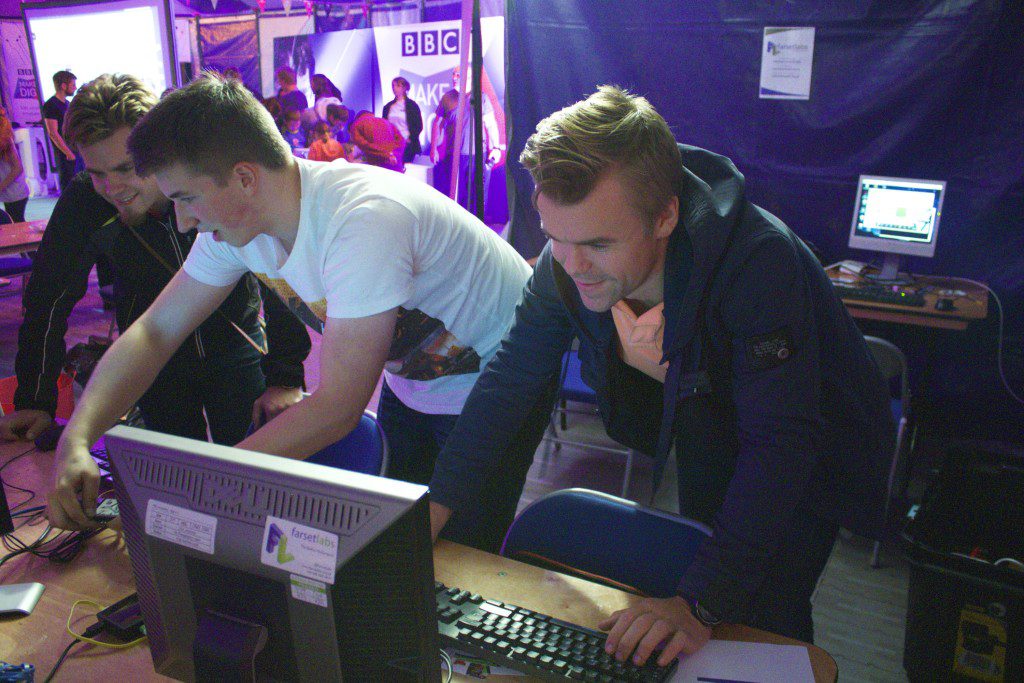
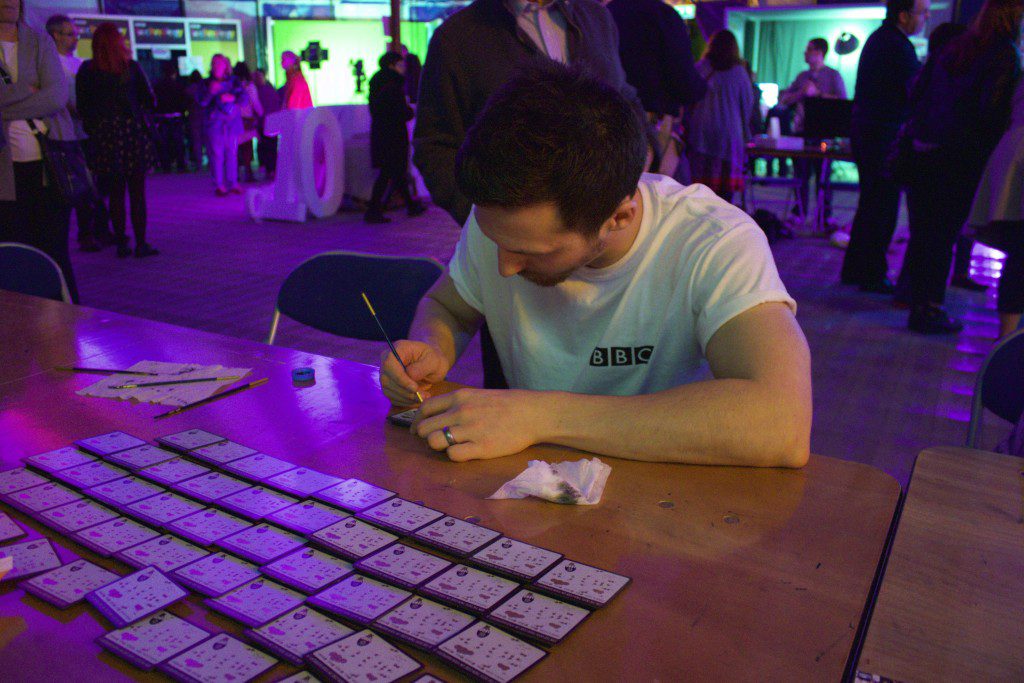
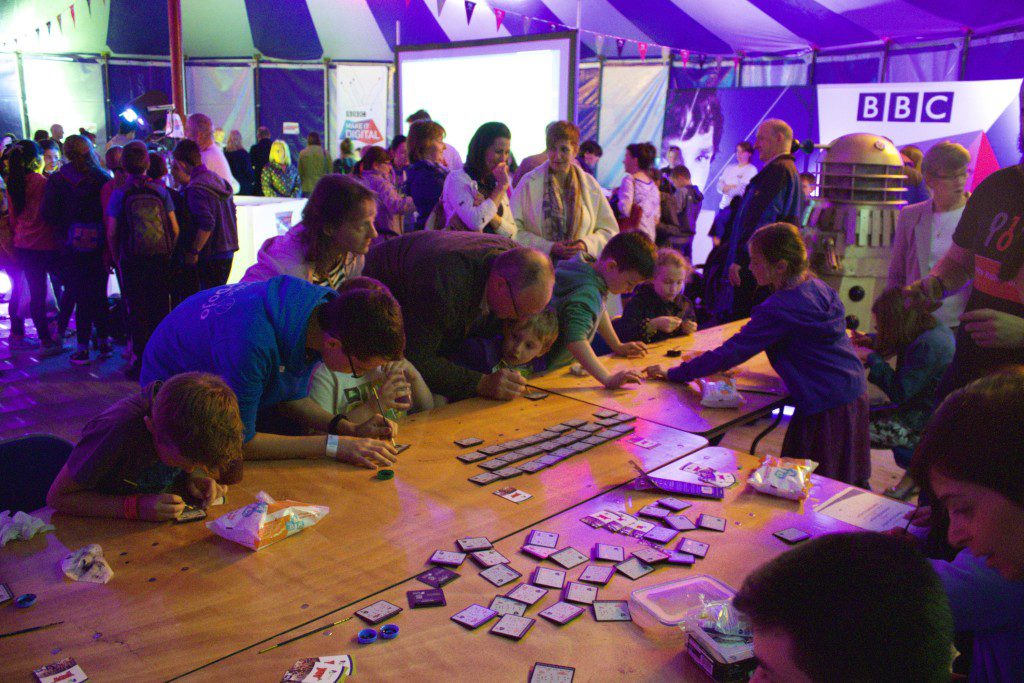
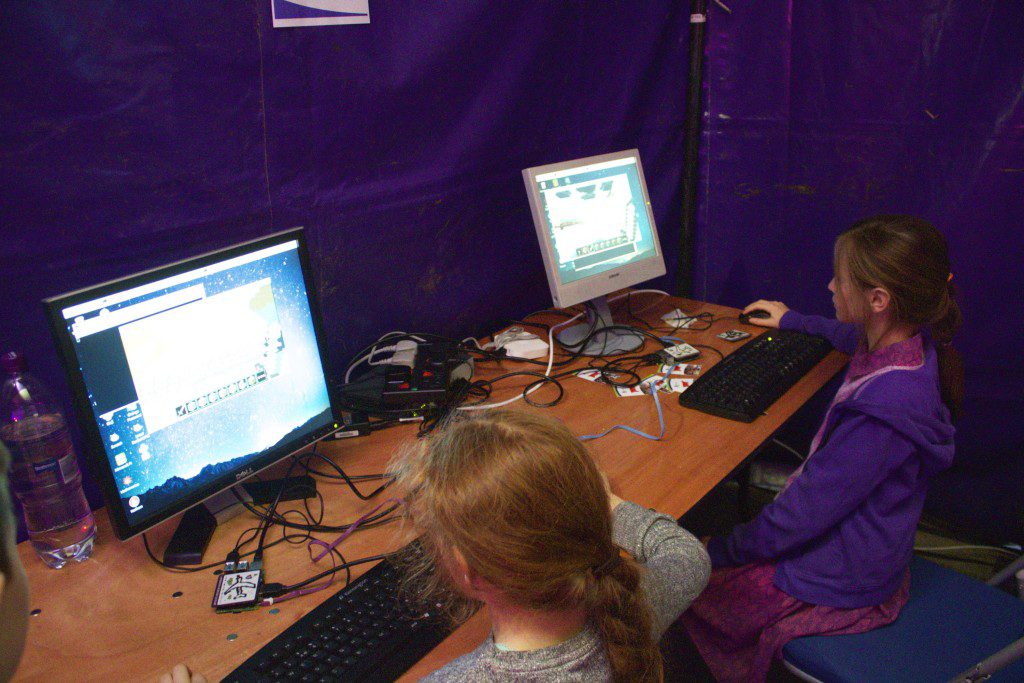
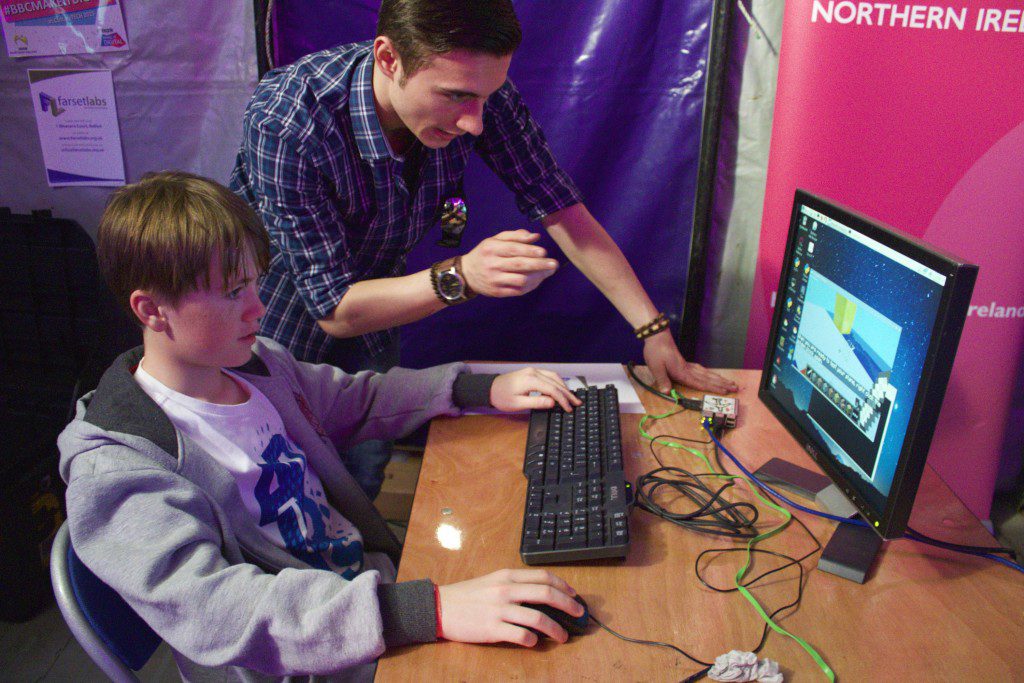
A huge thanks to my team of volunteers on the Friday evening.
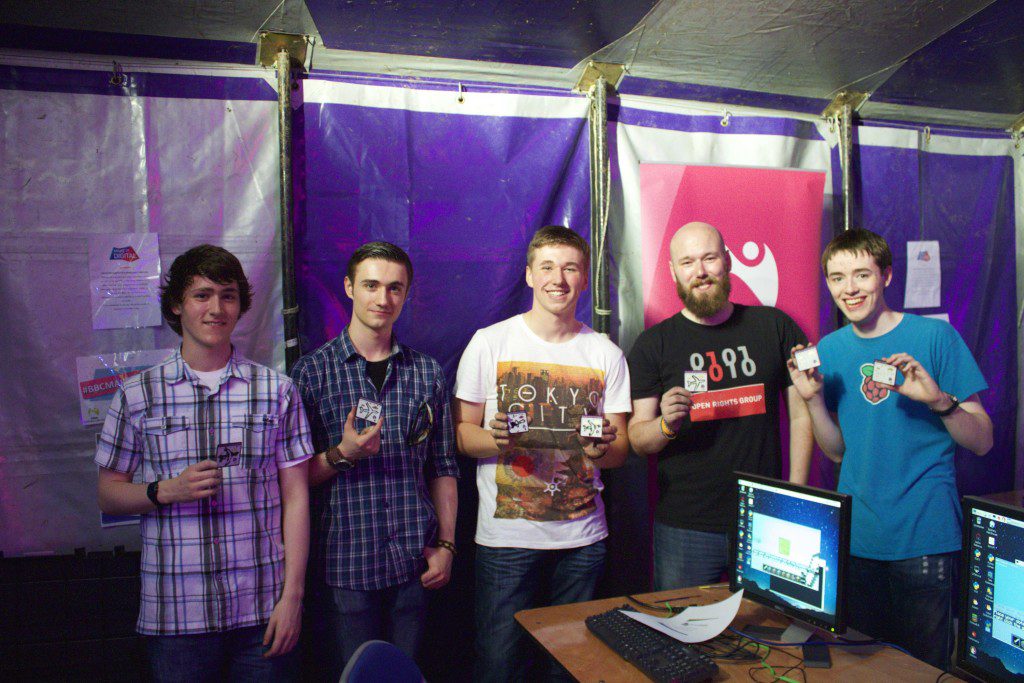
From left to right:
David Linton, Ryan Neill, Oliver Warke, Andrew Bolster, Andrew Mulholland (myself).
Saturday
The event ran from 10am-6pm on the Saturday. It coincided with the Londonderry Maker City event that was happening in next door in the Guildhall.
By the Saturday morning, I had been able to get some additional volunteers over to help out, although even with a team of 9 people (plus Matt from the BBC), we were still overwhelmed later in the day.
Although the event started at 10am, it didn’t get busy till after midday which allowed us to do some much needed Dots board cleaning catch up, table cleaning and GPIO pin fixing.
After midday though, we were basically constantly assisting people with the activity. This continued till around 5:30pm when it started to quiet down again.
On the Saturday we also set up a Raspberry Pi Camera module to do a timelapse of the event. Below is roughly 2 hours of the event in 55 seconds. As can be seen, it was incredibly busy!
https://www.youtube.com/watch?v=YU0jeffmVQ4
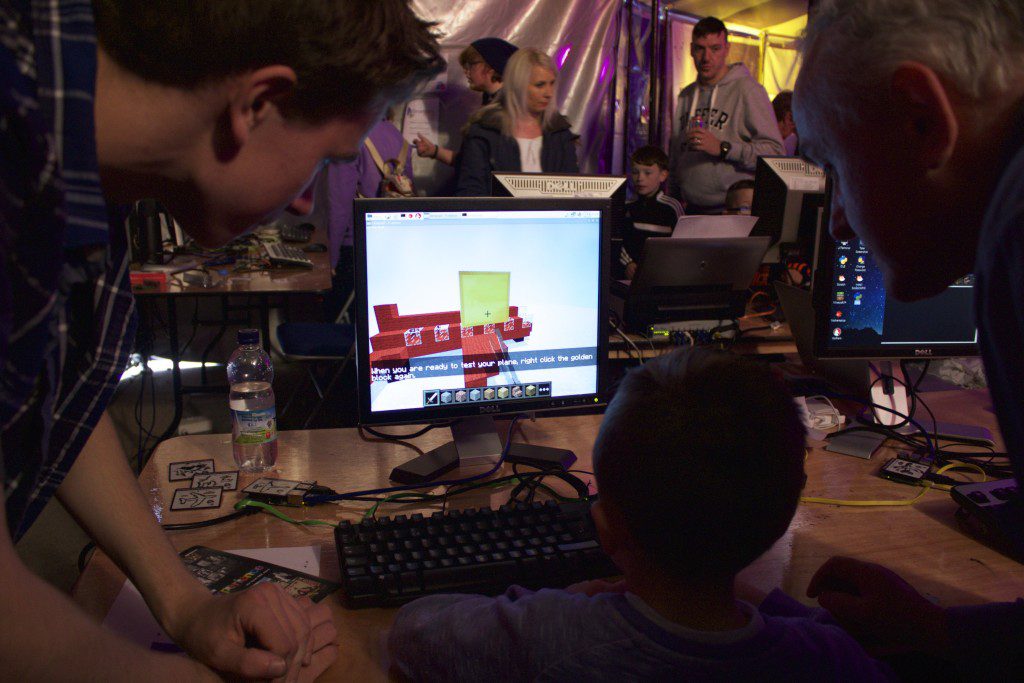
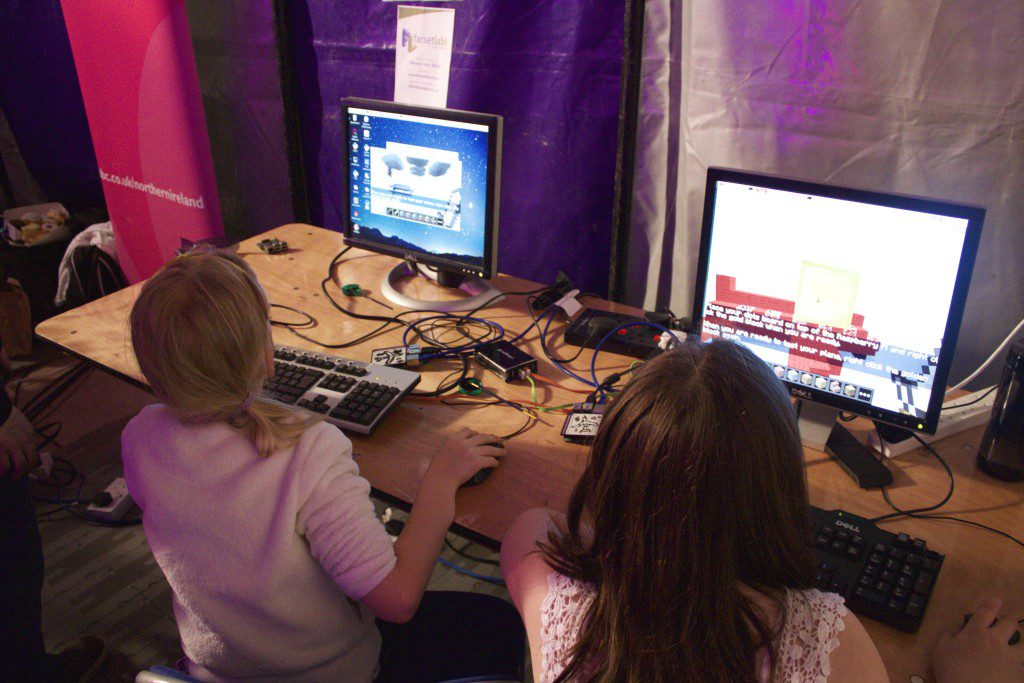
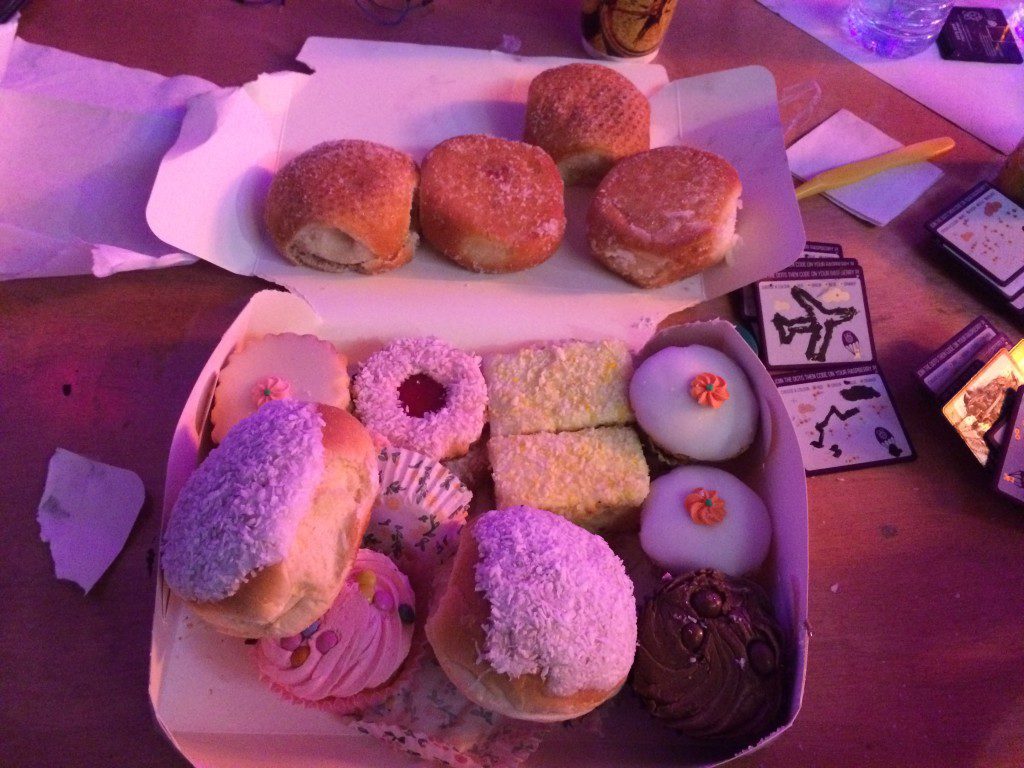
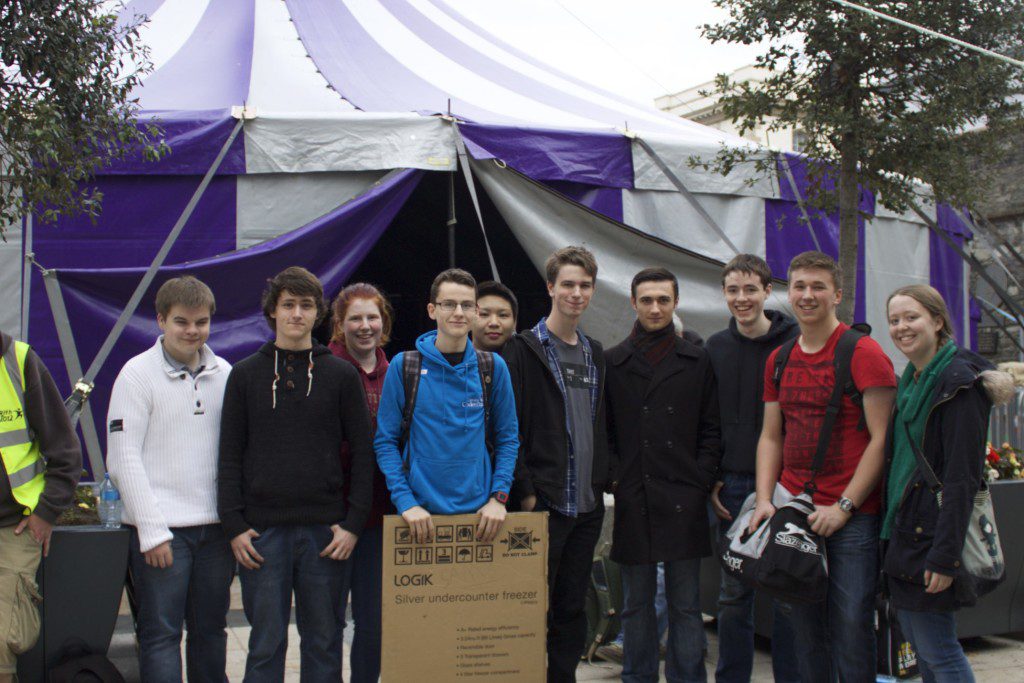
From left to right:
Toby Tregear, David Linton, Libby Hoy, Sam Stuart, Vincent Lee, Finley Roulston, Ryan Neill, Andrew Mulholland (myself) and Oliver Warke.
Conclusion
From feedback from parents, kids and the BBC, we can say that the activity was a complete success. With over 2000 people of all ages taking part from kids as young as 4, right up to senior citizens of 80+ years.
This is what makes the Dots Board activity so awesome, it really is suitable for people of all ages, thanks to its simplicity.
Big thanks to the BBC Make It Digital team for inviting us along and looking after us while in Londonderry, the Raspberry Pi Foundation for the Dots boards, Farset Labs for use of their equipment and to my volunteers, couldn’t ask for a better team over the 2 days.


